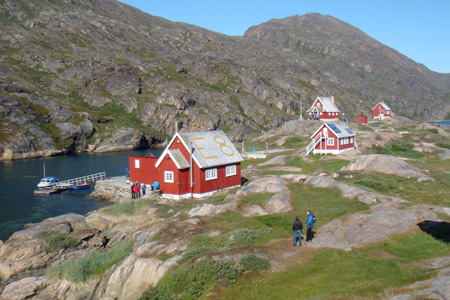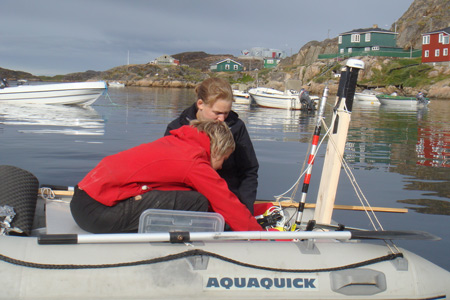Major changes are currently taking place in the Arctic region on account of the warmer climate. New problems and new opportunities are arising in step with the opening of new shipping routes, and the hunt for oil, gas, gold, and other minerals is intensifying. As a result, engineers with specialist knowledge about conditions north of the Arctic Circle are in great demand, so the Arctic Technology Centre (ARTEK) at DTU Civil Engineering will be running an Arctic Semester on Greenland for BSc and MSc students as from spring 2016.
Since the turn of the millennium, a total of 57 Arctic engineers have graduated from the DTU BEng programme in Arctic Technology. However, more specialized engineers are also required to power the development of technology adapted to the extreme conditions in the far north, and MSc students interested in this area now have the opportunity to take a specially designed semester at DTU Campus Sisimiut on Greenland. A well-functioning infrastructure is already in place, and the students are guaranteed inexpensive accommodation in the modern halls of residence for engineers.

The Arctic semester has been named ‘Extreme Environment Engineering’, because the teaching will focus not only on the conditions particular to the Arctic, but also on how technological solutions in general can be adapted to the unusual climate and nature conditions and assimilated into the societal conditions in the region.
The Arctic semester will be open to all MSc students at DTU with a background in areas including construction, the environment, energy, or planning. It will also be offered to external students as an international exchange semester. Finally, it may prove relevant for final year BSc students to take the first three courses of the semester and, perhaps, combine these with their BSc project.

New study programmes
The Arctic semester will be incorporated into completely new MSc programmes.
As from autumn 2015, the MSc in Civil Engineering will thus feature a new programme—Extreme Engineering—which will allow students to choose between courses in ‘Sustainable Buildings’ and ‘Infrastructure Conditions’.
From summer 2016 onwards, DTU will be offering a new Nordic Master’s programme in Cold Climate Engineering under the auspices of the Nordic Five Tech scheme, comprising the separate areas of ‘Land’, ‘Space’, and ‘Sea’. DTU Space will be involved in the ‘Space’ programme in partnership with Aalto University, while the ‘Land’ programme will be run jointly by DTU Civil Engineering and the Norwegian University of Science and Technology (NTNU), with students having the opportunity to study at the University Centre in Svalbard (UNIS).
Article in DTUavisen no. 6, June 2015.